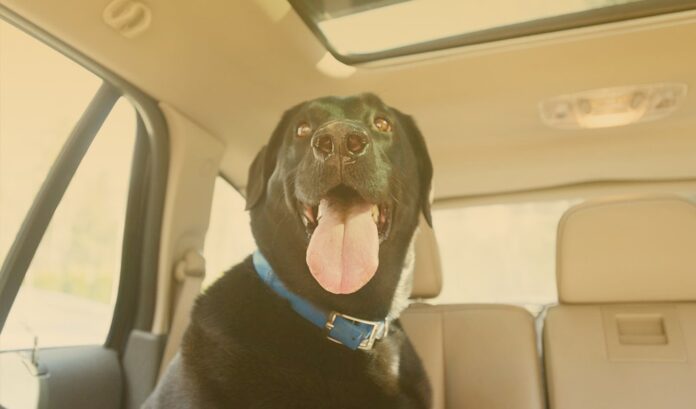WITH record high temperatures expec
“We can’t stress strongly enough how dangerous it is to leave your pet in a hot car,” says Lorie Chortyk, general manager of communications for the BC SPCA. “Last year, the BC SPCA responded to more than 800 calls about animals in distress in hot cars. The temperature in a parked car, even in the shade with windows partially open, can rapidly reach a level that can seriously harm or even kill a pet.”
She notes that because dogs have no sweat glands, they can only cool themselves by panting and by releasing heat through their paws. She says, “Dogs cannot withstand high temperatures for long periods, particularly
Chortyk says SPCA officers are called out to “worst case” situations every summer, where a beloved pet is in critical distress or has died after being left in a hot car. “It is a completely preventable tragedy for both the poor animal and their distraught guardian,” she adds.
The BC SPCA urges pet guardians to leave their animals at home when running errands on a hot day. “If you will need to leave them in a parked vehicle, even for a few minutes, don’t take them. Your dog will be much happier – and safer – at home, with shade and plenty of fresh cool water,” says Chortyk.
If you see an animal showing signs of heatstroke or other distress, call the BC SPCA Call Centre at 1.855.622.7722 during business hours or contact your local animal control agency, RCMP or police.
What to do if you see a dog in distress in a parked vehicle:
- Note the license plate and vehicle information and ask managers of nearby businesses to page the owner to return to their vehicle immediately.
- If an animal is clearly in distress, call to report the situation to the BC SPCA, animal control or a law enforcement agency. Note: It is illegal for members of the public to break a window to access the vehicle themselves – only the RCMP, police and special provincial constables of the BC SPCA can lawfully enter a vehicle.
- Be an advocate! Help spread the word that pets and hot vehicles are a dangerous mix.
Symptoms of heatstroke in pets:
- Exaggerated panting (or the sudden stopping of panting)
- Rapid or erratic pulse
- Salivation
- Anxious or staring expression
- Weakness and muscle tremors
- Lack of coordination, convulsions
- Vomiting
- Collapse
If your pet shows symptoms of heatstroke:
- Immediately move the animal to a cool, shady place
- Wet the dog with cool water
- Fan vigorously to promote evaporation. This will cool the blood, which reduces the animal’s core temperature
- Do not apply ice. This constricts blood flow, which will inhibit cooling.
- Allow the animal to drink some cool water (or to lick ice cream if no water is available)
- Take the animal to a veterinarian as soon as possible for further treatment











